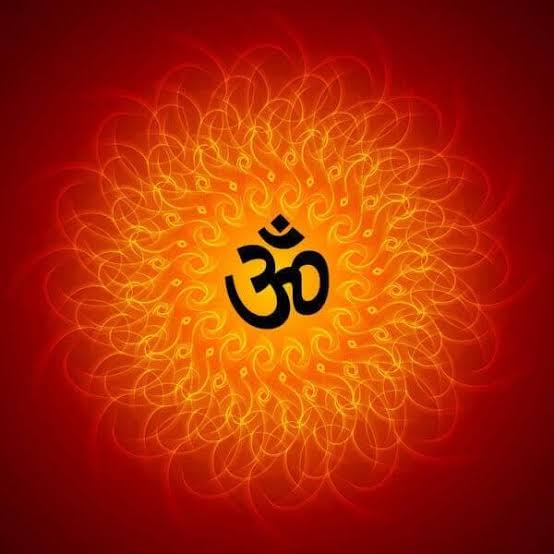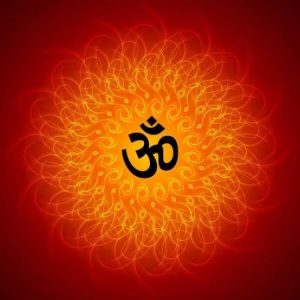Dharma and Individual Differences

(Glorious Heritage of Bharat –Part 19)
Dr. Gauri Shankar Gupta
Each individual is a unique creation and each one of us constitutes a Universe in oneself. Although we all belong to the human race with all the basic attributes of a human being, no two individuals are identical in this Universe, including identical looking twins. Since each individual can be identified on the basis of his fingerprints or the DNA which can be extracted even from the tiniest part of his hair, his complete personality is a complex mix of millions, perhaps billions of factors. Since identical looking twins who are borne of the same parents are not identical then how can two individuals born in two different parts of the world in two different families and educated in different ways be identical? This is asking for the impossible. Each individual is a unique creation based on billions of permutations and combinations. Therefore, to begin with, we must accept individual differences as a reality. If we display a painting or any other object to a group of people and ask each one of them to describe it, each description will be different. Although each one of us is made up of the same five primordial elements (ether, air, fire, water and earth) and each one of us is endowed with a miraculous mind and intellect and the element of the same divine called ‘soul’, our thinking process is unique. Perceptions through our senses are unique as well. Our attitudes, our way of thinking, our voices, our expressions, our appearances, the way we walk, the way we smile, are all unique. Therefore, individual differences constitute the core of humanity as also the core of dharma.
This uniqueness of our personality starts from the very moment of our conception and keeps on accentuating every millisecond since then; both in the physical frame and in the subtle constituents. The balance of Karma, and subtle parts of mind and senses one brings with him/her are the first intangibles that produce the individual differences. This baggage provides some basic attributes to each one of us since the very moment of conception. The qualities of the semen and the egg and the environment in which conception takes place decide our next uniqueness. We all know that all the basic features of human beings are encoded in the combination of semen and egg. Height, the color of eyes and hair, basic health, approximate age, facial features and so on, are all encoded in this seed. Modern science admits that the biological constitution of each one of us is unique and different from others. The genes we inherit decide the basic attributes of our personality. These cannot be changed in a fundamental way. An orange seed can grow into an orange tree only. It cannot become an apple or a mango tree. However, the quality of oranges or mangoes could vary depending on the nourishment and the care the tree receives once the seed is germinated. Similarly, the experiences during pregnancy, the health and temperament of the mother, the type of food, the quality of air and other nourishments have substantial impact on the future attributes of a person. Thereafter the experiences of the individual since his birth play a critical role in his evolution. Since life is a continuous flow of experiences, each experience, pleasant or unpleasant, leaves a mark on our personality. Thus, there are trillions of factors that play their role in shaping our individuality. Moreover, our personality remains constantly in flux. It flows like a river. My personality today is based on trillions of such factors which must have played their role knowingly or unknowingly over the years. If one thinks of one’s life at a given moment in time, it is nothing but the collective body of experiences since conception in addition to the genes and the baggage of past lives inherited at the time of conception. Since these factors and their permutations and combinations are unique for each individual, it is but natural that each one of us is a unique creation and constitutes a Universe of his or her own.
That is why the understanding of dharma has to be different for each one of us even in an identical situation. For example, a person born in a Christian family will dominated by Christian thoughts, one born in a Hindu family will be dominated by Hindu philosophy and the one born in a Muslim family will be dominated by Islamic ideas. Thus, the value system of an individual considerably depends on the values of this family, neighborhood and society as well as his education and upbringing. Therefore, the circumstances of birth will substantially decide about and have an impact on his belief system, values of life, and his response to problems. Similarly, language, clothing, food, hobbies, and a large number of other personality traits are dictated by the circumstances of one’s birth. Birth, whether it’s a coincidence or destiny or the result of our past karma, does prescribe a large number of parameters and conditionality for our future growth. A person born in the United States and another in India are bound to have two different paths to life and values. Similarly, a person born in a beggar’s family and another in a royal family are bound to have different values, conditions of life and development. All these factors will have an impact on the path an individual is going to take in his life.
Similarly, experiences since birth play an equally important role in shaping the personality of an individual. Let us take an example of real-life experiences. A person who has studied in a good educational institution with liberal values will have a different thought process than the one who never went to an educational institution or the one who went to a purely localized institution. A person who has never been deceived will tend to trust others but the one who has been deceived time and again will tend to distrust others. A person who works in a retirement home will be affected by the sufferings as well as the courage of the old and the sick. These hard facts of life could affect him in a variety of ways, depending on his perceptions and the attributes of his genes. Likewise, the company one keeps also plays a significant role in shaping the personality. Vibrations from your surroundings continue to reach your mind through the brain cells. Each day there are hundreds, perhaps thousands of factors that affect our thought and response processes from the people surrounding us. Thus, it is clear that each one of us, based on known and unknown factors numbering millions, perhaps billions, develops a unique personality and behavior. Experiences are a continuous inflow, constantly affecting and reshaping our personality. From the above examples it is clear that each individual is a complex creature despite having the basic features of a human being. We therefore cannot apply a uniform yardstick for each one of them. That is why dharma is an individualistic concept. Each one of us has to search our own answers from within to the questions we face in our daily life. Although these answers must be based on the concept of right and just behavior, one has to analyze, search and find them from within, based on the individual’s inherited genes, upbringing, values, education and experiences. A just decision based on such an internal exercise reinforces harmony with one’s own self. This precisely is the idea of dharma. The following verses from the Mahabharata explain the basic parameters and the individualistic nature of dharma:
Mahabharata
तस्मात् कौन्तेय विदुषा धर्माधर्मविनिश्चये।
बुद्धिमास्थाय लोकेऽस्मिन् वर्तितव्यंकृतात्मना।। शान्ति १४१.१०२।।
One should depend upon one’s intellect and understanding to decide between dharma and adharma (wrong or unjust conduct) and act accordingly.
(Shanti 141/102)
शास्त्रं यदि भवेदेकं श्रेयो व्यक्तं भवेत् तदा।
शास्त्रैश्च बहुभिर्भूयः श्रेयो गुह्यंप्रवेशितम्।। शान्ति २८७.१० ।।
Were there only one source of knowledge and only one means of gaining the good, the situation would have been clear; but there are many sources describing the good in many different ways, they have to be taken together to decide what is right.
(Shanti 287/10)
(Writer is Former Ambassador/High Commissioner of India)


